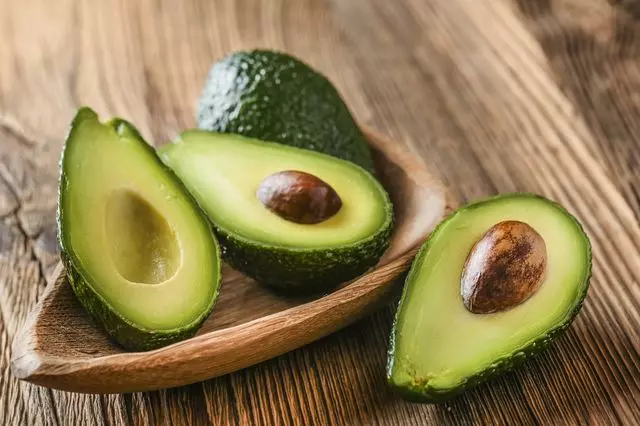
In a study conducted in the USA, the effects of eating avocados once a week on cardiovascular diseases were examined. In the study, which examined more than 110,000 people, it was stated that people who ate avocados once a week had a 21 percent less risk of having a heart attack compared to those who did not eat it.
In a new study conducted in the USA, it was found that eating 2 servings of fatty fruit a week reduces the risk of heart attack.
In the study published in the Journal of the American Heart Association, it was emphasized that the risk of heart attack in both men and women decreased if it was eaten instead of butter, cheese or processed meat, while the benefits of avocado were especially noted.
The findings of the study, which included more than 68,000 women and more than 41,000 men, underlined that eating at least two servings of avocados a week reduced the risk of heart attack by 21 percent compared to not eating or eating avocados infrequently.
The opinions of some scientists in this study, which was found to reduce the risk of heart disease, are as follows:
Speaking about the research, study author Harvard T.H. Lorena Pacheco, research assistant in the nutrition department, said that an avocado serving that should be eaten is defined as "half an avocado weighing about 80 grams."
Cheryl Anderson, chair of the American Heart Association's Council on Epidemiology and Prevention, said: "While no food is the solution to routinely eating a healthy diet, this study is proof that avocados have potential health benefits."
According to the data of the World Health Organization (WHO), cardiovascular diseases stand out as the disease that causes the most deaths worldwide, taking about 18 million lives each year.
The US Centers for Disease Control and Prevention (CDC) states that heart disease takes one life every 36 seconds in the US alone.
How is the avocado diet done?
- You should start by drinking plenty of water during the day.
- You should reduce your meals and portions, if possible, without eating too often.
- Since avocado contains natural fats and vitamins, you should not consume too much extra fat and energizing foods.
Things to consider in the avocado diet
- When you want to consume coffee during the day, you can drink a glass of sugar-free and milk-free. You should stay away from carbonated, sugary and packaged products.
- You should adjust your portions according to yourself and continue the diet for a maximum of 5 days and take a break.
- You should stay away from mango, grape, potato and vegetable oils. You can consume all kinds of vegetables.
- You should stay away from full-fat milk and dairy products, and consume others in small amounts. If possible, the yogurt should be homemade.
- There is no harm in consuming avocado, watermelon, apple, pear, peach, orange, lime, lemon. You can add it to your list as you wish.
- You should make sure that you consume enough protein throughout the diet. To your list for the remaining days for your protein needs; You should consume by adding mushrooms, soy, beans, lentils, chicken breast, turkey meat, eggs, lean red meat, salmon, tuna.
Other benefits of avocado
- It prevents morning sickness during pregnancy.
- Prevents the formation of cancer cells.
- It is good for the skin, it is anti-aging.
- It is rich in vitamin K.
Findings from a recent study reveal that consuming avocado as part of a healthy diet may help reduce the risk of metabolic syndrome and its associated risks, such as heart disease. The study, published in the Journal of the American Heart Association, looked at data from over 25,000 adults in the National Health and Nutrition Examination Survey. The researchers found that those who ate avocado had a 50% lower risk of metabolic syndrome and a 39% lower risk of having high triglycerides. They also found that the avocado eaters had a lower risk of having low levels of HDL cholesterol, which is the "good" cholesterol that helps protect against heart disease. "Our findings suggest that adding avocado to a healthy diet can help improve risk factors for metabolic syndrome and heart disease," said Dr. Doris Santana-Santos, lead author of the study. The study did not find a link between avocado consumption and a lower risk of diabetes or high blood pressure. However, the researchers say that the findings add to the growing body of evidence that eating avocado may help reduce the risk of some chronic diseases.
